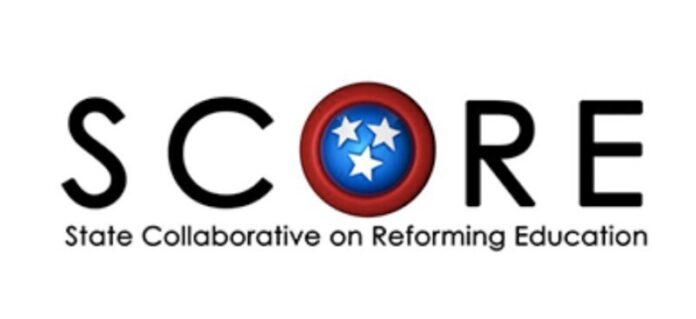Every year, the State Collaborative on Reforming Education (SCORE), an educational watchdog non-profit founded 15 years ago by Senator Bill Frist, M.D., releases a report on their annual goals for educational commitment for kindergarten through grade 12 (K-12) for the year to come. The report, entitled “Casting a Vision for Student Success” provides six key points that the organization believes Tennessee education should focus on in the coming year to strengthen foundational policies and build effective pathways between education and careers.
“Every point along the education journey matters — from the early years through [high school] graduation,” said Sen. Bill Frist, M.D., chairman and founder of SCORE, in a press release. “At each milestone, there are key indicators of success that build on one another and give students the best chance at a fulfilling education, career and life. If we have the data and the ideas to propel them through that journey, then we must take action and prepare them for their future.”
Leaders gathered recently to hear from speakers and a panel of experts who addressed the question, “Are Tennessee students prepared for careers that enable economic independence?” Answering the question led to “an intentional look at the entire educational journey, taking a look at a greater alignment across K-12, post-secondary, and the workforce.” The report analyzes both the gains achieved in recent years as well as areas ripe for improvement due to persistent gaps in student achievement, postsecondary completion, and career preparation.
SCORE has developed a set of statewide goals, looking ahead to the year 2030, to help answer the above question, according to the report. “Called TN2030, these ambitious but attainable goals cast a data-driven vision for student success across the education continuum with the aim of ensuring more Tennesseans are on clear pathways toward opportunity. Strong progress can be made when just one more student in every classroom across the state reaches key educational milestones each year.”
TN2030 looks at four areas: Third grade English language arts, seventh grade math, post-secondary pathways, and credential completion.
- Third-grade literacy is one key milestone for student achievement. Students not reading on grade level by the third-grade not only struggle with subsequent coursework and learning experiences, but are also less likely to graduate from high school and pursue a postsecondary pathway.
- Failing a middle school math course is a strong predictor for failure to graduate from high school. Additionally, students not proficient in math by the end of seventh-grade are more likely to struggle with complex high school mathematics courses, including algebra, which is highly predictive of success in postsecondary education.
- Post-secondary education opens doors for more job opportunities and increased earnings and is, therefore, important for a student’s pursuit of economic independence. Research suggests that students who don’t pursue a postsecondary pathway immediately after high school have a decreased likelihood of earning a postsecondary credential in the future.
- Completing education beyond high school can springboard students into career success. Earning a postsecondary degree or credential leads to higher lifetime earnings, increased civic participation, and reduced involvement in the criminal justice system. Further, 63% of Tennessee jobs will soon require some form of education beyond high school.
The six focuses for next year, in addition to addressing TN2030, will be:
Connect credentials and workforce opportunity: There are not enough qualified Tennesseans to meet workforce needs. While 63% of Tennessee jobs will soon require training after high school, only 47.9% of adults in the state hold a postsecondary credential or degree. At the same time, the U.S. Chamber of Commerce reports only 56 available workers for every 100 open jobs in Tennessee.
Improve long-term student success through postsecondary funding: Tennessee’s postsecondary funding formula is one tool the state can leverage to forge a better pathway for students from education to career. Tennessee cemented its leadership in postsecondary funding policy in 2010 with the adoption of a funding formula that awards the majority of state appropriations for institutions of higher education based on outcomes such as credit accumulation and graduation.
Focus on high school pathways that prepare students for careers that enable economic independence: To build pathways that propel students toward success, the state needs more focused information on the elements of these experiences that are having the most impact on education and workforce outcomes. Early postsecondary opportunities (EPSOs), career-and-technical education (CTE), and work-based learning (WBL) are three important opportunities to accelerate students toward credentials and careers. Research shows that, overall, these experiences can have a positive impact on student outcomes, such as graduation and postsecondary enrollment.
Innovate to recruit and retain excellent educators: Building a highly effective K-12 teacher workforce is a priority for Tennessee. Teachers are essential in preparing students for success in postsecondary education, the workforce, and life. In fact, research shows that teachers matter more for student achievement than any other school-related factor. Many districts in Tennessee report difficulty in fully staffing their schools with qualified teachers, and challenges are highly localized.
Bolster access to high-quality public charter schools: National research also finds that in cities with a robust public charter sector, low-income students in all public schools (charter and non-charter) are making meaningful growth. These findings demonstrate that public charter schools are an effective strategy for supporting students from historically underserved groups. Importantly, students of color and economically disadvantaged students in Tennessee’s charter schools have proficiency rates at or above their district peers.
Recommit to the foundational K-12 policies that have advanced student success: Tennessee is a leader in holding students and teachers to high expectations, monitoring progress, and using data to drive improvement. But that hasn’t always been the case. In 2007, national assessment data revealed a stark reality that only 29% of Tennessee fourth-graders were proficient in math and only 27% in reading. However, state assessments were holding students to much lower expectations, claiming in that same year that 89% of Tennessee fourth-graders were proficient in math and 90% in English language arts (ELA).94 Tennessee was not being honest with students, parents, or taxpayers about whether students were prepared for successful futures. Tennessee leaders knew that students were capable of more and introduced three key policies to transform the state’s education system: rigorous academic standards, aligned assessments, and more comprehensive teacher evaluation. These transformational policies became foundational for the state’s educational improvement efforts.
SCORE hopes that everyone will join them in envisioning a future where more Tennessee students have a clear path to opportunity. Advancing these priorities requires a shared statewide commitment to pursuing solutions for the most important challenges our students face along their educational journeys.
Subscribe to our FREE Newsletter!



























